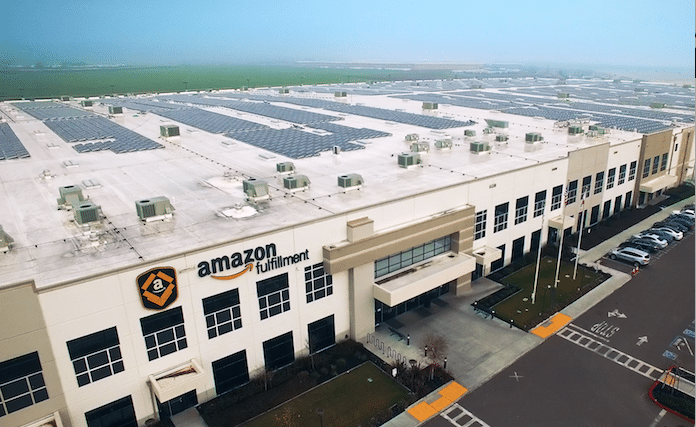Amazon (Nasdaq: AMZN) announced plans on Thursday to acquire the primary care provider One Medical (Nasdaq: ONEM) for a price tag of $3.9 billion.
Once the acquisition closes, it will give Amazon a large primary care capability to potentially pair with its growing home-based care business, Amazon Care. Originally launched in 2019 as part of a pilot with Amazon’s Seattle-based employees, the Amazon Care model uses virtual and in-person visits from medical professionals to deliver “health care to customers when and where they need it.”
Under the agreement, Amazon will acquire One Medical for $18 per share in an all-cash transaction. Once the deal is complete, Amir Dan Rubin will remain as CEO of One Medical.
Enhancing and streamlining the delivery of care services is high on Amazon’s priority list, according to Neil Lindsay, senior vice president of Amazon Health Services.
“We think health care is high on the list of experiences that need reinvention,” Lindsay said in a press statement. “Booking an appointment, waiting weeks or even months to be seen, taking time off work, driving to a clinic, finding a parking spot, waiting in the waiting room then the exam room for what is too often a rushed few minutes with a doctor, then making another trip to a pharmacy – we see lots of opportunity to both improve the quality of the experience and give people back valuable time in their days.”
Enter One Medical — a tech-enabled, membership-based primary care organization that functions using virtual and in-office care. The company has roughly 767,000 members and 188 medical offices in 25 markets, according to its Q1 earnings report.
The San-Francisco based 1Life Healthcare Inc. is One Medical’s parent company.
“The opportunity to transform health care and improve outcomes by combining One Medical’s human-centered and technology-powered model and exceptional team with Amazon’s customer obsession, history of invention, and willingness to invest in the long-term is so exciting,” Rubin said in the statement. “There is an immense opportunity to make the health care experience more accessible, affordable, and even enjoyable for patients, providers, and payers. We look forward to innovating and expanding access to quality healthcare services, together.”
In addition to its direct-to-consumer services, One Medical also works with more than 8,000 companies to provide its employee health benefits. The company went public in 2020.
On its end, the acquisition further solidifies Amazon’s position as a major player in the health care sector.
“Amazon adding retail primary care into the mix at this scale is something that has been long coming, and fits in well with their already built-out portfolio with Amazon Pharmacy, Amazon Diagnostics and Amazon Care,” Michael Abrams, managing partner of the global health care consultancy Numerof & Associates, told Home Health Care News. “Now, the company has the ability to integrate the three pillars, pharmacy, telehealth, and primary care, into a comprehensive and attractive model.”
Last year, the company began offering its Amazon Care telehealth program nationwide. While Amazon Care isn’t completely available for the general public just yet, experts have posited that this could eventually change.
Even before its expansion of Amazon Care’s virtual services, the company had made moves to push itself further into the health care sector.
In 2020, the company teamed up with Crossover Health, an employer health provider, to launch employee health clinics.
In 2018, Amazon formed a partnership with Berkshire Hathaway and JPMorgan Chase to form Haven. The joint venture was focused on improving employer health programs. In February, Haven disbanded.
Over the years, the company has also dipped its toe into the senior care space.
In 2018, there were talks of a potential partnership with AARP. The nature of a partnership was centered around designing technology for aging populations.
Last year, Amazon launched a health care feature through its Alexa device aimed at helping informal caregivers monitor seniors inside the home.
That same year, Amazon Care joined a consortium of health care organizations — Signify Health, Ascension, Home Instead and others — to form “Moving Health Home,” an advocacy group with the goal of changing federal and state policies to expand at-home care.
Amazon’s purchase of One Medical could open up even more doors for a further move into home-based care services in the near future.
Along with primary care, home-based care is often underutilized in the U.S. But many companies — including Humana Inc. (NYSE: HUM), CVS Health (NYSE: CVS) and Walgreens Boots Alliance (Nasdaq: WBA) — have begun to combine these services.
Ultimately, no matter what Amazon decided to do, Abrams believes the company is focused on the future of care delivery.
“Retail health providers are responding to the demand caused by the consumer-insensitive attitude of the current, dinosaur-like provider model,” he said. “They’ve been slowly ceding this ground for decades, but fail to recognize what makes retail health more attractive than what they’ve been offering.”




